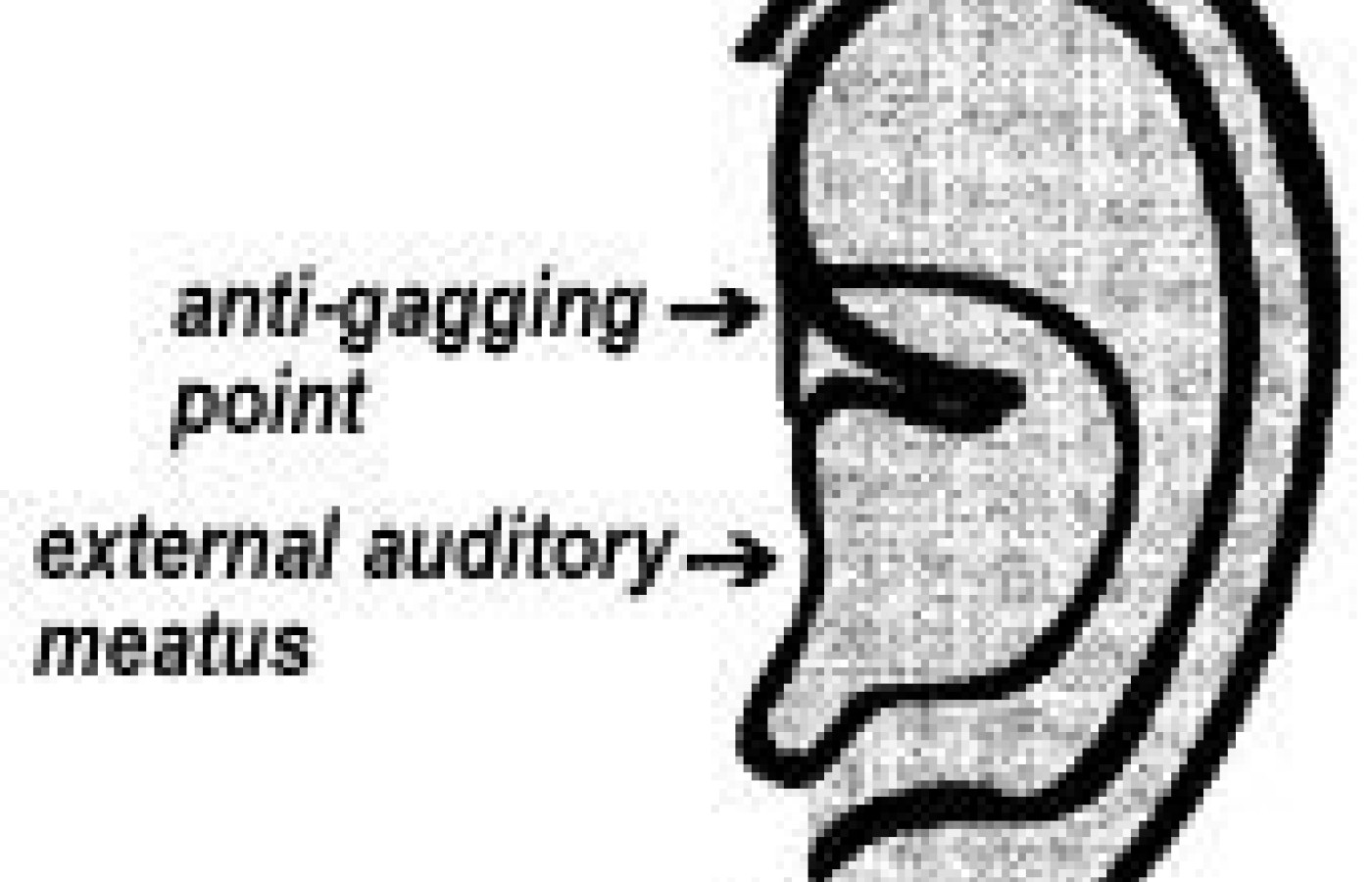The most important relationship I seek to nurture in the treatment room is the one a patient has with their own body. We live in a culture that teaches us to override pain, defer to outside authority, and push through discomfort. Patients often arrive hoping I can “fix” them, but the truth is, we can’t do the work for them. We can offer guidance, insight and support, but healing requires their full participation.
Acupuncture May Cure Gag Reflex in Dental Patients
For many people, a visit to the dentist's office can be a frightening experience. In fact, some health experts estimate that up to half of all American adults will not seek dental care for fear of going to the dentist. Some patients are particularly sensitive to dental equipment, which can cause them to gag uncontrollably when an instrument such as a drill or mirror is placed in the mouth. Others are so terrified, either due to a bad prior experience or to stories they've heard about bad dental experiences, that the mere thought of dental treatment may cause them to gag even before any work has begun.
Whether the fear is real or imagined, patients who are overly sensitive to dental work are usually forced to choose one of two options. Many people choose sedation or general anesthesia, but these options drive up the cost of care, carry a wide range of possibly dangerous side-effects, and can render patients incapacitated for several hours following treatment. Other people simply choose not to see the dentist, which brings with it a wide variety of personal health and hygiene problems.
Researchers in Great Britain appear to have found a solution to the problem of dental gagging. According to a new study published in the British Dental Journal, stimulation of an acupuncture point on the ear prior to undergoing treatment effectively controls the gag reflex, allowing dentists to perform a variety of procedures without compromising the patient's safety and comfort.
The investigators chose 10 people between the ages of 40 and 65, each of whom had been referred to a sedation unit because of an exaggerated gag reflex. All of the subjects were rated either a four or five (out of five points) on the Gagging Severity Index, making conventional treatment impossible and having an adverse affect on their ability to seek a dentist for care. Prior to referral, six people were able to receive treatment only with intravenous sedation; two were unable to receive treatment because of their gag reflexes; and two had avoided dental care altogether out of fear.
Before being treated by the dentist, each patient received acupuncture at a point on the upper part of the ear between the concha and triangular fossa. The researchers used a fine needle (7mm) into the anti-gagging point of each ear to a depth of three millimeters. The needles were manipulated for 30 seconds prior to dental treatment and remained in place until the patient was discharged.
Using ear acupuncture, the patients underwent a total of 25 dental treatment episodes. Episodes ranged from routine forms of care, such as fillings, impressions and teeth cleaning, to more complicated procedures, including extractions, root canals and biopsies. All of the patients tolerated the acupuncture extremely well; according to the researchers, "there were no reactions to the technique." Only two episodes of mild gagging were noted, and all of the subjects were able to travel home without assistance.
Many of the participants expressed their joy at being able to undergo treatment without gagging. Some patients said they had "tried everything" to control their gag reflexes before taking part in the study. Others reported that because of their fear, they had avoided seeing a dentist and worried how they would cope if faced with a dental emergency. One patient even reported she had searched "for the last 20 years" trying to find a cure for her dental gagging before turning to acupuncture.
"You would not expect 100% success with just a placebo effect, especially as the patients had had the problem for a long, long time, and their attitude was it probably won't work," said Dr. Janice Fisk, a clinical assistant at the department of sedation and special care dentistry at Guy's Hospital in London and the study's lead author.
In addition to the perceived patient benefits, ear acupuncture was considered a quick and cost-effective adjunctive to dental care. The researchers estimated an added cost of only 0.2 pounds (approximately 29 cents) per person per treatment episode, and an additional treatment time of only 2-3 minutes per episode.
"The technique of ear acupuncture is relatively non-invasive," they wrote. "It causes little discomfort, is cheap and requires little additional time. The patient is unaffected by the technique, does not require an escort, and can return to normal daily activities after treatment."
While the scientists were unable to determine how acupuncture suppressed the gag reflex, they did offer a possible explanation. In the traditional theories of auricular acupuncture, different ear points are associated with different body parts and are roughly equivalent to those of a fetus mapped out on the external surface of the ear. In this instance, the anti-gagging point did not correspond to the traditional location of the head on the lobe of the ear. In describing the technique's mechanism of action, however, they observed that one of the main nerves involved in swallowing, the vagus nerve, also supplies the part of the ear that contains the anti-gagging acupuncture point. The point is also adjacent to a branch of the trigeminal nerve. Together, the trigeminal and vagus nerves are responsible for much of the sensory and motor functions of the larynx, pharynx and palate. "One can only speculate that in some way, as yet not understood, stimulation of the anti-gagging points activates mechanisms that inhibit the muscle activity of the gag reflex," they wrote.
Because the study was based on the results of a group of clinical cases and not a planned, controlled clinical trial, Fiske and her team stopped short of labeling ear acupuncture as a cure for the dental gag reflex. They also recommended that because the people seeking a cure for their condition had been doing so for a long time, a larger, controlled study should be conducted to rule out the possibility of a placebo effect.
Despite these limitations, the researchers believe acupuncture may be used to control the dental gag reflex so that dentists can provide the necessary treatment - and so that patients can cope with it.
"Ear acupuncture helped all ten people to accept dental treatment comfortably," they concluded, adding that the procedure "· was successful in controlling the gag reflex in the ten cases reviewed, and it was not necessary to compromise dental treatment. The technique is safe, quick, inexpensive and relatively non-invasive."
References
- Fiske J, Dickinson C. The role of acupuncture in controlling the gagging reflex using a review of ten cases. British Dental Journal June 9, 2001;190(11):611-613.
- Acupuncture cures dental gagging. BBC News, June 12, 2001. Available online at http://news.bbc.co.uk/hi/english/health/newsid_1383000/1383004.stm.
- Norton A. Acupuncture may ease gag reflex during dental work. Reuters Health, June 13, 2001.



